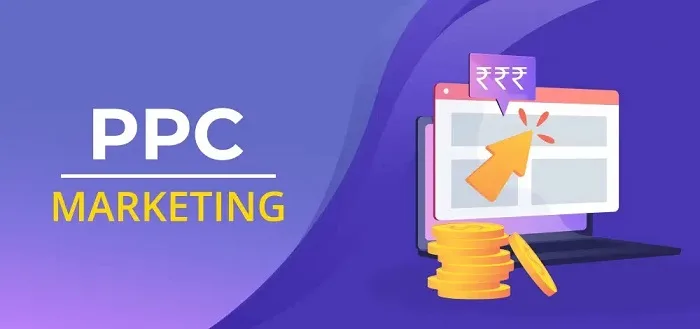
PPC Marketing Strategies for Instant Online Success
PPC (Pay-Per-Click) marketing is a form of internet advertising where advertisers pay a fee each time one of their ads is clicked. Essentially, it’s a way of buying visits to your site, rather than attempting to “earn” those visits organically. Search engine advertising is one of the most popular forms of PPC. It allows advertisers to bid for ad placement in a search engine’s sponsored links when someone searches on a keyword that is related to their business offering.
PPC marketing is widely used because it can drive immediate traffic to websites. Advertisers create ads and choose keywords related to their business, and these ads appear in search engine results or on partner websites. Each click on an ad costs the advertiser money, but it also brings a potential customer to their site. When done correctly, PPC advertising can be a cost-effective way to generate leads and sales.
How Does PPC Marketing Work and Why is it Used?
PPC marketing works on a bidding system. Advertisers bid on keywords they want to target. When a user searches for those keywords, an auction is triggered, and the highest bidder’s ad is displayed in the prime position. The process involves setting up campaigns, creating ad groups, writing compelling ad copy, and continuously monitoring performance to optimize results. Platforms like Google Ads and Bing Ads provide detailed analytics to help advertisers measure their campaign’s effectiveness and ROI.
The primary reason for using PPC marketing is its ability to deliver instant results. Unlike SEO, which can take months to yield results, PPC ads can generate traffic as soon as they go live. This makes it an ideal strategy for businesses looking to drive quick traffic, promote time-sensitive offers, or test new products. Additionally, PPC marketing offers precise targeting options, allowing advertisers to reach specific audiences based on location, device, and even the time of day.
What is PPC Marketing Used For?
PPC marketing is used to generate immediate traffic to a website, promote special offers or events, launch new products or services, gain visibility in competitive markets, and test and optimize marketing strategies. For businesses in competitive industries, PPC can be a way to stand out and capture the attention of potential customers. It allows businesses to quickly gain a presence in search engine results and compete with larger, more established brands.
Successful Examples of PPC Marketing
Many businesses have successfully leveraged PPC marketing to achieve their goals. For instance, a local bakery used Google Ads to promote their new line of gluten-free pastries. By targeting specific keywords related to gluten-free products and local searches, they were able to increase their website traffic by 50% and boost sales by 30% within the first month. Another example is an online retailer specializing in outdoor gear that ran a PPC campaign on Bing Ads targeting keywords like “camping equipment” and “hiking gear.” The campaign resulted in a 40% increase in online sales and a significant boost in brand awareness.
A software company launched a new productivity app and used PPC ads on social media platforms to target professionals and businesses. The targeted ads helped the company acquire over 10,000 new users within the first three months. Similarly, a fashion retailer used PPC marketing to promote their seasonal sales event. By creating ad groups for different product categories and using retargeting ads, they saw a 25% increase in online sales during the event period.

How Effective is PPC Marketing?
PPC marketing is highly effective when done correctly. It provides measurable results, and advertisers can track every aspect of their campaigns, from clicks to conversions. The ability to set a budget and only pay for actual clicks makes PPC a cost-effective marketing strategy. Additionally, the data collected from PPC campaigns can be used to refine other marketing efforts, providing insights into customer behavior and preferences.
One of the key advantages of PPC marketing is its scalability. Businesses can start with a small budget and gradually increase their spending as they see positive results. This flexibility allows businesses of all sizes to compete in the digital marketplace. Moreover, PPC marketing can be integrated with other digital marketing strategies, such as SEO and content marketing, to enhance overall effectiveness.
However, the success of a PPC campaign depends on various factors, including keyword selection, ad quality, landing page experience, and continuous optimization. Without proper management, PPC campaigns can become costly and deliver suboptimal results. Therefore, it’s crucial for businesses to invest time and resources into learning and applying PPC best practices.
Does PPC Marketing Make Sense?
For many businesses, PPC marketing makes perfect sense as part of a comprehensive digital marketing strategy. It offers immediate visibility and can generate quick results, making it an attractive option for businesses looking to boost traffic and sales. The precise targeting capabilities of PPC allow businesses to reach their ideal customers at the right time and place.
However, PPC marketing is not a one-size-fits-all solution. It requires careful planning, execution, and continuous optimization to achieve the desired outcomes. Businesses must consider their goals, target audience, and budget before launching a PPC campaign. By setting clear objectives and monitoring performance, businesses can maximize the benefits of PPC marketing.
In conclusion, PPC marketing can be a valuable tool for businesses seeking to enhance their online presence and drive targeted traffic to their websites. With the right strategy and execution, PPC can deliver impressive results and provide a strong return on investment.
Popular
-
 Mobile Push Notification Copy: Short, Usef...
Mobile Push Notification Copy: Short, Usef...Mobile push notifications remain one of the most direct communication channels between …
-
 Content Pruning vs Content Refreshing: How...
Content Pruning vs Content Refreshing: How...Every site collects content debt: pages that used to help but now …
-
 The Structure of a Persuasive Commercial T...
The Structure of a Persuasive Commercial T...Commercial copywriting in 2025 is no longer built around loud promises or …
-
 Why Brands Are Finding It Harder to Mainta...
Why Brands Are Finding It Harder to Mainta...Audience loyalty has long been viewed as a stable foundation for sustainable …
